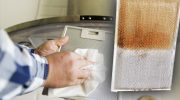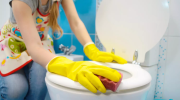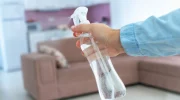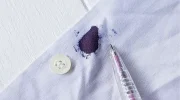Every kitchen has items that are essential to everyday life. This is particularly the case with the sponge. However, the latter is a real breeding ground for bacteria. However, there is a genius trick for maintaining it.
The ideal tip for washing your kitchen sponge
We all use a sponge to wash the dishes, clean the worktop or wipe up splashes. And as you will have realized, it quickly accumulates food residues, moisture, but also micro-organisms invisible to the naked eye.
On the other hand, there is a simple trick for cleaning kitchen sponges. To develop this technique, you will need two things: salt and a microwave.

Together, they form a formidable duo for disinfecting a sponge thoroughly and effortlessly. You won’t need to invest in chemicals that are bad for your health and also for the environment.
It is a fast, natural and, above all, very effective method of preventing this very common object from becoming a breeding ground for germs. Salt has been known for centuries for its antiseptic and absorbent properties.
With the intense heat generated by the microwave, the salt helps to create an environment hostile to bacteria, fungi and other micro-organisms that you don’t want on your kitchen sponge.

This will allow you to clean the sponge thoroughly. This tip is much more effective than simply rinsing it in hot water. To apply this tip, simply soak the dirty sponge in a bowl of water.
A very simple technique
Then you need to add a generous amount of salt, then leave it all to stand for a few minutes. Then all that remains is to place the bowl with the kitchen sponge in the microwave and turn it on for about a minute.
Once the time is up, you should remove the sponge and gently wring it out. Then you should leave it to dry in a well-ventilated place. You will then have a clean, disinfected and odorless sponge. This method is not a substitute for good daily maintenance practices.

However, it does extend the lifespan of the sponges while maintaining a good level of hygiene. It is recommended that you rinse the sponges after each use and not use them to clean surfaces other than those in the kitchen.
In addition, it is very important not to forget to let them dry completely between uses. There are other interesting alternatives for disinfecting sponges. You can soak them in a solution of diluted bleach or put them in the oven for a few minutes.
On the other hand, the microwave method with salt has the advantage of being more natural, faster and safe for food surfaces. Be careful, however, never to put a dry kitchen sponge in your microwave.









